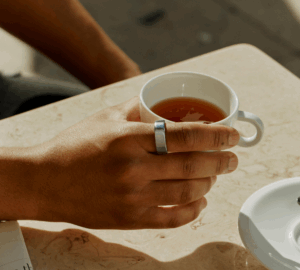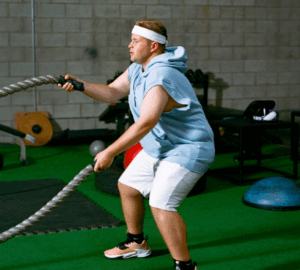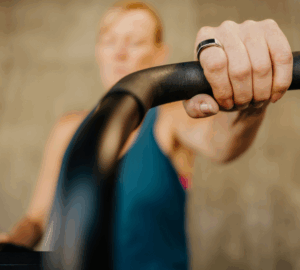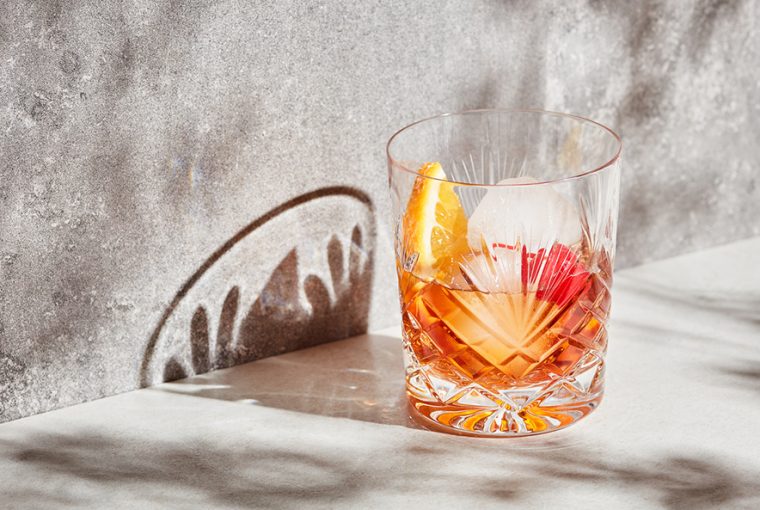Having a nightcap before bed is a common nighttime ritual. Research finds nearly 30% of U.S. adults drink alcohol to help them fall asleep — while 67% of people who experience insomnia report using alcohol to help them sleep. As you sink into bed and doze off after a drink or two, it’s tempting to think you’ve unlocked the secret to falling asleep.
But this is one shortcut you may want to avoid. While you may fall asleep quickly, the quality of your sleep suffers under the influence. Alcohol affects multiple processes in your body that prevent you from getting high-quality sleep.
How Alcohol Impacts Your Sleep
Alcohol impacts several of your body’s sleep systems.
Decreases melatonin: Alcohol inhibits the release of melatonin, your body’s primary sleep signal. Read more about how melatonin tells your body that it’s time to sleep here.
Reduces growth hormone: Alcohol reduces growth hormone release, which is crucial for your body’s nighttime repairs.
Increases stress hormones: Alcohol increases your body’s levels of cortisol, a stress hormone that increases your resting heart rate and generally stimulates the body, making it more likely you’ll wake up during the night.
Disrupts your circadian rhythm: Alcohol can impact your brain and liver’s internal clocks, causing your body to be misaligned with its natural sleep cycle.
Increases urination: Alcohol is a diuretic. Your body typically halts your bladder function at night; however, alcohol may interrupt your sleep for extra trips to the bathroom.
Aggravates breathing problems: Alcohol causes your muscles to relax, including your throat. This relaxation can make you more prone to snoring and can worsen sleep-related breathing problems like sleep apnea.
Lowers blood oxygen levels: Some research shows that alcohol is known to worsen breathing in individuals who have certain conditions, such as sleep apnea, reducing the oxygen entering the blood and therefore blood oxygen levels. Plus, there is evidence that alcohol can disrupt the absorption of oxygen by hemoglobin which results in lower oxygen saturation.
RELATED: How Does Alcohol Impact Oura Members?
Look Out for These Patterns
Wondering if all this applies to you? Take notice next time you have a drink before bed.
Watch for these patterns in your Oura App:
- Better sleep latency: Alcohol’s sedative effect reduces the time it takes for you to fall asleep by overriding your body’s natural, gradual transition to sleep.
- More deep sleep, less total sleep: Alcohol may increase your deep sleep on the first night of drinking; however, it decreases your total hours of sleep.
- Delayed REM, less REM: Alcohol significantly delays your first REM sleep cycle. Moreover, because alcohol also decreases your total sleep time and REM is weighted later in your sleep cycles, alcohol leads to fewer total minutes in REM.
- Higher restlessness: Alcohol impacts your bladder, leading to more bathroom trips and more awakenings.
- More fragmented sleep: Alcohol is more likely to disrupt the second half of your night, often decreasing total time spent asleep and disrupting your flow through sleep stages.
Given that you’re not sleeping as well, you’re likely to suffer the next day with poorer reaction times, decreased concentration, compromised memory, and increased irritability.
This, along with that late-night piece of greasy pizza you might have had—which also interferes with sleep—can compound to make your next day tough.
Soften the Effects of Alcohol on Sleep
Does this mean you have to give up drinking altogether? Not necessarily.
Some people are more susceptible to alcohol than others, so compare your results to an average night’s sleep without alcohol to see what changes.
Try out these tips to soften alcohol’s impact on your sleep:
- End early: Allow your body at least 3 hours before bed to metabolize the alcohol from your system. Keep in mind this varies by your weight, gender, and consumption.
- Hydrate often: Alternating alcoholic drinks with water can help you stay hydrated and drinking less alcohol over the course of an evening. This, in turn, can keep your blood alcohol concentration low and that will leave you feeling better the next morning.
- Avoid mixers: Beverages that have sugar or caffeine in the mix are more likely to stimulate your internal clocks when you’re trying to wind down.
References
- Roehrs, Timothy, and Thomas Roth. “Insomnia pharmacotherapy.” Neurotherapeutics 9, no. 4 (2012): 728-738.
- Rupp, Tracy L., Christine Acebo, and Mary A. Carskadon. “Evening alcohol suppresses salivary melatonin in young adults.” Chronobiology International 24, no. 3 (2007): 463-470. (link)
- Ekman, A. C., O. L. L. I. Vakkuri, M. I. K. A. Ekman, J. Leppäluoto, A. Ruokonen, and M. Knip. “Ethanol decreases nocturnal plasma levels of thyrotropin and growth hormone but not those of thyroid hormones or prolactin in man.” The Journal of Clinical Endocrinology & Metabolism 81, no. 7 (1996): 2627-2632. (link)
- Spencer, Robert L., and Kent E. Hutchison. “Alcohol, aging, and the stress response.” Alcohol Research and Health 23, no. 4 (1999): 272-283. (link)
- Udoh, Uduak, Jennifer Valcin, Karen Gamble, and Shannon Bailey. “The molecular circadian clock and alcohol-induced liver injury.” Biomolecules 5, no. 4 (2015): 2504-2537.
- Ebrahim, Irshaad O., Colin M. Shapiro, Adrian J. Williams, and Peter B. Fenwick. “Alcohol and sleep I: effects on normal sleep.” Alcoholism: Clinical and Experimental Research 37, no. 4 (2013): 539-549. (link)
- Prinz, Patricia N., Timothy A. Roehrs, Peter P. Vitaliano, Markku Linnoila, and Elliot D. Weitzman. “Effect of alcohol on sleep and nighttime plasma growth hormone and cortisol concentrations.” The Journal of Clinical Endocrinology & Metabolism 51, no. 4 (1980): 759-764. (link)




